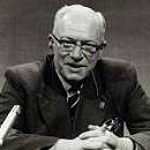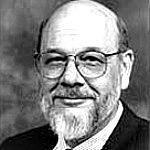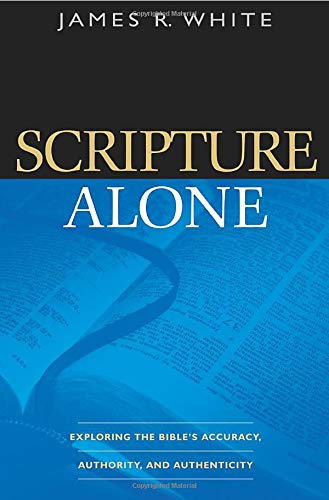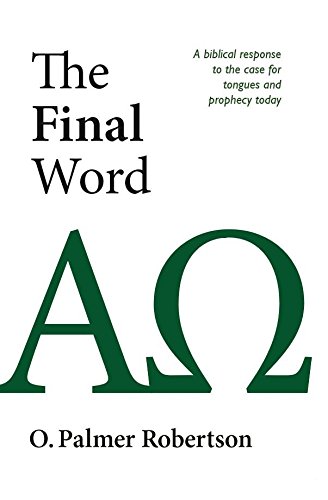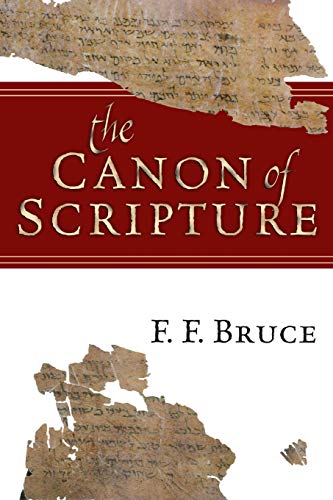Quotes about Bible-Canon
It is the simple truth to say that the New Testament books became canonical because no one could stop them doing so.
Quoted in: The New Covenant Scriptures by Charles E. Hill, Tabletalk, October 2008, p. 14. Used by Permission of Ligonier Ministries.
Canon of the New Testament:
1. Early Christian writings gradually collected. Gospels. Paul’s writings (2 Peter 3:16).
2. Marcion, Gnostic heretic (139 A.D.) determined list of writings. Rejected O.T., revised Luke’s gospel, ten Pauline epistles. Restricted list.
3. Montanus claimed divine revelation. Expanded list.
4. Church responded to these attempts to expand or restrict.
5. Irenaeus, 180 A.D. cites 22 writings as acceptable: 4 gospels, Acts, 13 Pauline epistles, 1 Peter, 1, 2 John and Revelation.
6. Muratorian list – named after Italian Muratori (1740) who discovered such. Fragment dated late 2nd to 4th century. 22 books plus Apocalypse of Peter. Hebrews, 1,2 Peter, 3 John and James omitted.
7. Tertullian (150-230) – 22 books accepted: 4 gospels, Acts, 13 Pauline epistles, 1 Peter, 1 John, Jude, Revelation.
8. Origen (185-255). Three categories of writings:
a. Acknowledged: 4 gospels, 13 Pauline epistles, 1 Peter, 1 John, Acts, Revelation.
b. Disputed: 2 Peter, 2, 3 John, Hebrews, James and Jude; also Epistle of Barnabas, Shepherd of Hermas, Didache.
c. Heretical: Gospel of Thomas, Gospel of Peter, etc.
9. Eusebius (260-340).
a. Acknowledged: 4 gospels, 14 Pauline epistles (Hebrews included), I Peter, I John, Acts.
b. Disputed: James, Jude, 2 Peter, 2, 3 John, Revelation. Spurious: Shepherd of Hermas, Epistle of Barnabas, Didache, Acts of Paul.
c. Heretical: Gospel of Thomas, Peter, Acts of Andrew etc.
10. Codex Sinaiticus (4th century). 27 books plus Epistle of Barnabas and Shepherd of Hermas.
11. Council of Laodicea (363) – 26 books. Revelation omitted.
12. Athanasius (367) – first time list includes the 27 books of present N.T.
13. Jerome’s Vulgate included 27 books of N.T.
14. Augustine (397), 3rd Council of Carthage, accepted 27 books of N.T.
Picking up any of a number of recent works on the NT canon, one is likely to find the author seeking the roots of the NT canon somewhere in the needs of the early church. One says it was the battle against heresy that prompted the church to find some authoritative texts on which to take its stand. Another points to the catechetical and liturgical need for new scriptures to nourish the spiritual life of the church. Another looks to Constantine the Great’s campaign to unify the empire, which allegedly required an agreed-upon set of scriptures as an essential tool to promote concord. These all, and more, may have played limited roles in bringing about the church’s agreement on the contents of the NT. But the ultimate foundations for the existence of a NT canon must be sought not in any of these historical exigencies, but in the gracious purpose of a self-revealing God whose word carries His own divine authority.
The New Covenant Scriptures, Tabletalk, October 2008, p. 14. Used by Permission of Ligonier Ministries.
It is important to realize that in all its deliberations about the books that make up the canon of Scripture, the church did not sovereignly “determine” or “choose” the books it most preferred. It saw itself as empowered only to receive what God had provided, in books handed down from the apostles and their immediate companions. “Apostolicity,” “antiquity,” and “orthodoxy,” are not criteria by which the church autonomously judged which documents it wanted, but qualities the church recognizes in the voice of its Savior. Likewise, “liturgical use” and “church consensus” are reflections of the testimony of the Holy Spirit in the life of the church.
The New Covenant Scriptures, Tabletalk, October 2008, p. 17. Used by Permission of Ligonier Ministries.
Over the centuries, three widely recognized principles were used to validate the writings that constituted divine, inspired revelation. First, the writing had to have been authored by a recognized prophet or apostle or by someone associated with one, as in the case of the books of Mark, Luke, Hebrews, James, and Jude. Second, the writing could not disagree with or contradict any previous Scripture. Third, the church had to display a general consensus that a writing was an inspired book.
God’s Word by John MacArthur and Richard Mayhue taken from Biblical Doctrine by John MacArthur and Richard Mayhue, copyright 2017, Crossway Books, a division of Good News Publishers, Wheaton Illinois 60187, www.crosswaybooks.org. Page 119.
It is not the church (or the people of God) that determines which books are inspired by God and are thereby Scripture. The writings themselves are vested with the authority of God on the basis of divine inspiration. They are the Word of God because they were written under the Spirit’s inspiration. The people of God (the church for the New Testament, Israel for the Old Testament) merely recognize the authority present within those writings. Canonicity is based on the fact of inspiration, not the process or agency that did the collecting.
God’s Word by John MacArthur and Richard Mayhue taken from Biblical Doctrine by John MacArthur and Richard Mayhue, copyright 2017, Crossway Books, a division of Good News Publishers, Wheaton Illinois 60187, www.crosswaybooks.org. Page 120.
Since circa AD 350–400, the twenty-seven books of the New Testament have been universally accepted as inspired by God.
God’s Word by John MacArthur and Richard Mayhue taken from Biblical Doctrine by John MacArthur and Richard Mayhue, copyright 2017, Crossway Books, a division of Good News Publishers, Wheaton Illinois 60187, www.crosswaybooks.org. Page 120.
Canonicity refers to the church’s recognition and acceptance of the books of Scripture as God’s inspired Word. The term itself comes from the Greek word kanōn, which originally meant a “reed” or a “rod.” Since a rod was frequently used as a measuring stick, the word began to convey the idea of a “standard” or “rule.”
God’s Word by John MacArthur and Richard Mayhue taken from Biblical Doctrine by John MacArthur and Richard Mayhue, copyright 2017, Crossway Books, a division of Good News Publishers, Wheaton Illinois 60187, www.crosswaybooks.org. Page 120.
Is the canon of Scripture closed? 1. Genesis and Revelation, by their contents, are the perfectly matched bookends of Scripture. 2. Just as there was prophetic silence after Malachi, there has been prophetic silence since John delivered the Book of Revelation. 3. There have not been any authorized apostles or prophets, in the biblical sense, to write God’s inspired Word. 4. Clear biblical exhortations to not tamper with Scripture (Rev. 22:18-19). 5. The early church, those closest to the time of the apostles, believed that Revelation concluded God’s inspired writings.
God’s Word by John MacArthur and Richard Mayhue taken from Biblical Doctrine by John MacArthur and Richard Mayhue, copyright 2017, Crossway Books, a division of Good News Publishers, Wheaton Illinois 60187, www.crosswaybooks.org. Page 125.
The pursuit of private, subjective interpretation effectively denies both the objectivity and rationality of God’s truth. It also denies the sufficiency of His inspired Word, presuming that there is no more we need to know than what God has placed in Scripture. In the end, this anti-intellectual search for truth often leads to the kind of chaos we see dominating the charismatic movement. For others, it leads to disappointment, despair, and apostasy.
Neither individuals nor councils created the canon; instead they came to recognize and acknowledge the self-authenticating quality of these writings, which imposed themselves as canonical upon the church.
Christ will establish and build His church by causing the church to accept just this canon and, by means of the assistance and witness of the Holy Spirit, to recognize it as His.
In the past God spoke in a variety of forms. Listen to the opening verses from the book of Hebrews. “God, after He spoke long ago to the fathers in the prophets in many portions and in many ways, in these last days has spoken to us in His Son” (Heb. 1:1-2a). In Jesus Christ, the Word of God became incarnate. His words are God’s words. And His words were God’s final and most supreme revelation to mankind. On that holy mountain the Father declared, “This is My beloved Son, with whom I am well-pleased; listen to Him” (Mt. 17:5). Through Christ, Scripture is complete and sufficient for “everything pertaining to life and godliness” (2 Pet. 1:3). God designed it whereby no other revelation would compete with that of His Son. From Genesis to Revelation, the Scriptures are closed, and Christ had the final say.
